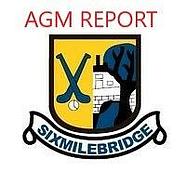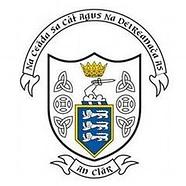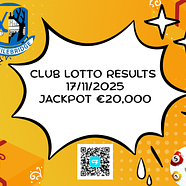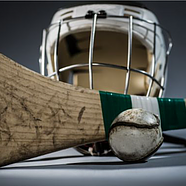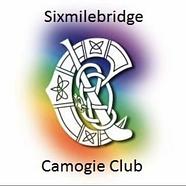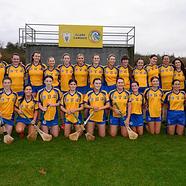Clublife: Jamesie O'Connor on passing on the best coaching lessons to today's hurlers
source: Sunday Independent
"I teach the same way the best teachers that taught and inspired me taught."
I was at a teaching in-service in Galway recently, when the above quote flashed up on a screen. In St Flannan's College, where I've taught and coached for the last 22 years, there's an element of truth to that sentiment. Subconsciously or otherwise, I think I've always tried to incorporate the best lessons taught to me, whether in the classroom, or on the training field, trying to pass that knowledge on to the next generation.
St Flannan's was a great starting point, both as a student and a hurler. I had great mentors and coaches in the school, especially Bishop Willie Walsh and Fr Seamus Gardiner.
One great example: I had always played and seen myself as a forward, but was delighted in second year just to make the under 15 team, albeit in the half-back line. In a first-year league, where we ran our own teams, a dodgy goalkeeper meant I had operated as a sweeper at the back, purely out of necessity.
I had obviously shown a decent ability to read the game well and hoover up ball, but it was noticed, and they saw something in me as a defender. Personally, I hated it, and couldn't wait for an opportunity to get further up the field. (That's where all the glory is!) But there were stages later in my career, especially at club level, when some of the best hurling I played was as a defensive midfielder.
That experience of playing at the back early on provided an important plank in my hurling education. It showed me how defenders think, or should think. When we played De la Salle in that under 15 final, I was cleaned out at wing-back by, I think, Fergal Hartley, who ironically went on to become a great defender with Waterford. It was a valuable lesson, and thankfully the end of my days as a defender. But the redeployment showed me how good coaches operate; how they are willing to try different ideas, both for the benefit of the team and to make the player a more rounded and complete hurler.
Fr Gardiner was a big influence on me but I was blessed to have other great teachers. The late Paddy Duggan from Éire Óg showed great faith in me when I was a young player. With the club, Brendan O'Connor and Mikey Twomey instilled great confidence in us all at club level, and Tony Kelly and Louis Mulqueen later built on those foundations. With Clare, Mike Mac and particularly Ger Loughnane had a massive influence. And in the midst of all that I was blessed to come across Eamon O'Shea in NUIG, the single biggest influence on my career. They played a huge role in developing me as a player, both as a hurler and how I should think as a hurler.
As a coach now, that is something which is very important to try to impart to players; to think about the game, to think about the drill or exercise they are doing, and what benefit it will have in a game or a pressurised match situation.
Coaching in Flannan's I have been lucky to have had the opportunity to work with some fantastic players. Our coaching emphasis has always been on skill. We never overly focused on fitness or physical conditioning, but the strength and conditioning culture has become so prevalent now the school has had to adapt and adjust with the changing demands.
Coaching at all levels now, from child to youth to adult, has moved on to a huge degree. Coach education has become hugely important in the GAA and Paudie Butler in particular has been an evangelist in spreading that gospel. Courses are routinely run by the GAA, especially at local level, which have increased and widened the coaching pathway. When you look now at what under 10 players can do, compared to my time, it's testimony to the massive strides that have been made and the benefits of better coaching at underage level.
Irrespective of the players you are working with, I think the key principles are largely the same. Last year, I started with the St Joseph's Doora Barefield under 21s, was a selector with the Munster Interprovincial team, got landed with the title of under 12 camogie manager in the club, coached the Dean Ryan (under 16) team in Flannan's, and finished up doing a bit with the first years.
Whether it's preparing to compete for a championship or coaching the very basics to a 10-year-old boy or girl, I think the attitude and energy you bring to training sets the tone. You have to be up for it. The more positive and enthusiastic you are, the more enjoyable and productive the session is likely to be. Players pick up on that. But it's a two-way street. There have been a few times over the years, especially in the depths of winter with a school team, when I have hit the fields wishing I didn't have to be there, only to be re-invigorated by the kids and the energy and willingness to learn and improve they have brought. That's the beauty of the game. Mastering the skills is such a challenge, but a hugely rewarding one, as much for the coach witnessing the players progress, as for the players themselves.
What I've really developed an appreciation for in recent times is just how technical a game hurling is. Five or six years with the Doora Barefield under 10s opened my eyes to that. I can't ever recall anyone teaching me how to strike the ball out of my hand, for example. I just did it. But it's only when you have to break the skill down for a child struggling to master it that you realise just how much there is to it.
There are times, too, when your head will be wrecked. Halfway through a session with the under 12 camogie team last summer, we had just started a match and play was at one end of the field when the rain began to fall. When I turned around, there was no one in the other half. Fifty yards away, they were haring for the dressing room, my own daughter Sinead leading the charge!
I don't know if I'm any better a coach now than I was when I first started. With so many different elements to coaching, I probably doubt myself now more than ever. But I'm probably more mindful, and hopefully a little bit wiser than when I first started. And still trying to teach the same way my best teachers taught me.
Coaching The attitude and energy you bring to trainingwill set tONE for the entire session
}~
You have to be up for it. The more positive and enthusiastic you are, the more enjoyable and productive the session is likely to be


